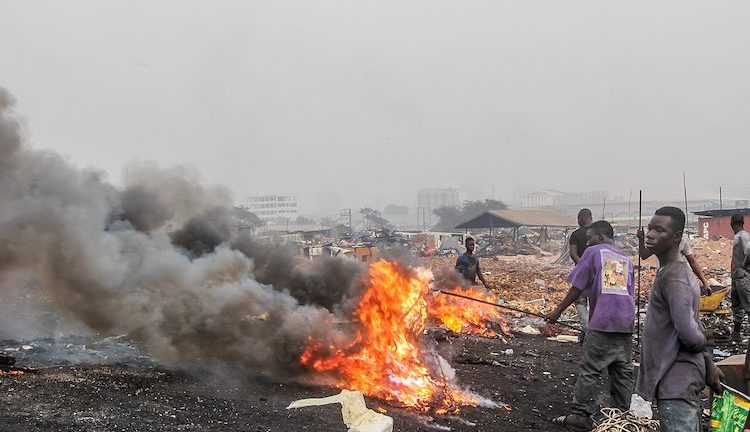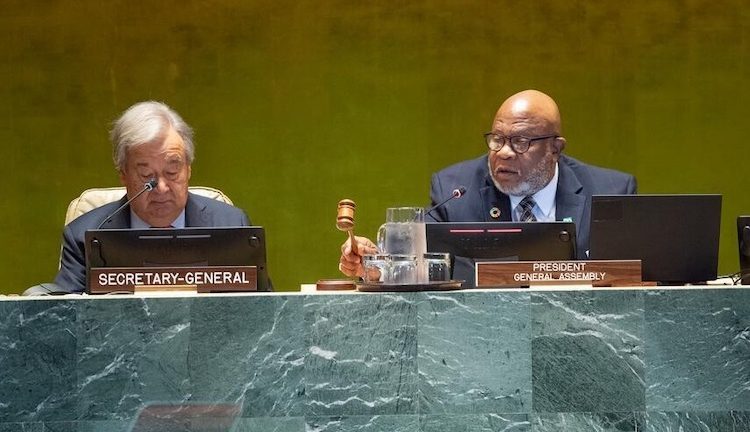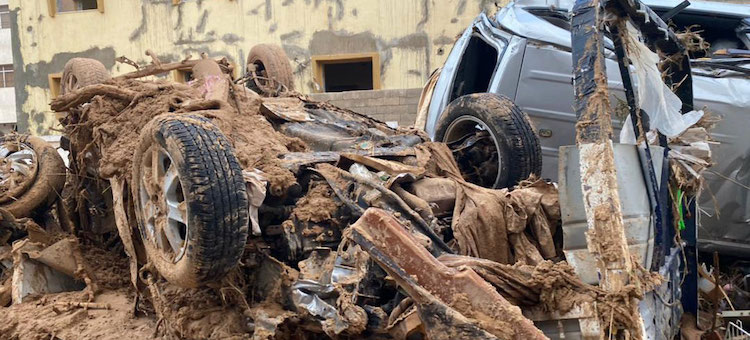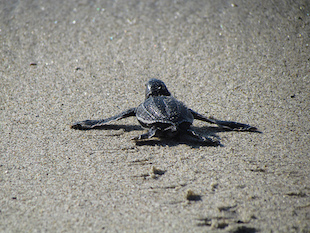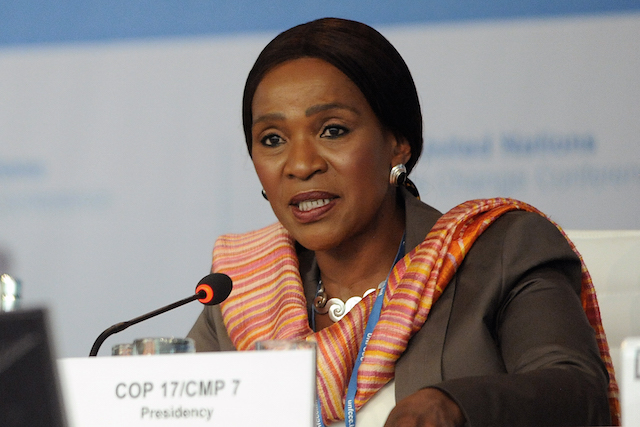By Jaya Ramachandran GENEVA | 2 November 2023 (IDN) — A new multi-agency report coordinated by the World Meteorological Organization (WMO) has warned that as the world warms at a faster rate than at any point in recorded history, climate change is threatening to reverse decades of progress towards better health and well-being, particularly in […]
Look Again at That Dot—That is us
By Jonathan Power LUND, Sweden | 24 October 2023 (IDN) — “Suppose aliens existed and that some had been watching our planet for its entire forty-five million centuries; what would they have seen? Over most of that vast timespan, Earth’s appearance altered very gradually. Continents drifted; ice-cover waxed and waned; successive species emerged, evolved, and […]
Respect Laws of Nature by Moving to a Circular Economy
By Sameepa Rajapakse* COLOMBO. 19 September 2023 (IDN) — Against the backdrop of the Sustainable Development Goals (SDG) Summit at the United Nations headquarters in New York on 18-19 September, it would be an appropriate time for us to focus on moving to a circular economy that respects laws of nature. While poverty and hunger […]
UN Chief Wants $500 Billion Annual Development Fund, Financial Reforms
By Arul Louis* UNITED NATIONS. 18 September 2023 (IDN) — UN Secretary-General António Guterres on Monday renewed his call for the reform of the “outdated, dysfunctional and unfair” World Bank and the International Monetary Fund (IMF) and for a $500 billion stimulus fund for the world organisation’s Sustainable Development Goals (SDGs). Speaking at the opening […]
Decaying Dams Blamed for ‘Worst Disaster’ in Libyan History
By Lisa Vives, Global Information Network NEW YORK. 17 September 2023 (IDN) — As stricken Libyans searched for signs of life amid the wreckage left by two enormous dams that burst in a hurricane-strength storm, anger was growing over warnings that were ignored but could have possibly prevented the worst disaster in the country’s modern […]
Global Heatwave Tells North and South that Climate Change Is Here
Analysis by Kalinga Seneviratne SINGAPORE. 5 September 2023 (IDN) — When heatwaves hit Southeast Asia, India and China in July, breaking temperature records across Asia, UN Secretary-General António Guterres said the “global boiling” era has arrived. And it didn’t take long for wildfires fuelled by high temperatures to spread across North America, Hawaii and Europe. […]
China’s Shandong Province Expands Its Footprint to The Pacific
By Kalinga Seneviratne SUVA, Fiji. 2 September 2023 (IDN) — A high-powered delegation of Chinese ocean and marine scientists and Asia-Pacific scholars from Shandong Province visited Fiji promoting South-South cooperation to mitigate climatic change—Pacific Islands’ biggest security threat. Facilitated by the Chinese Embassy here, Shandong Province and Fiji signed a memorandum of understanding (MOU) to […]
Polluters and Sufferers Push for Legally Binding Deal by COP21
By Jaya Ramachandran | IDN-InDepthNews Analysis
BERLIN | BRUSSELS | PARIS (IDN) – The UN Climate Change Conference (COP21) in Paris would be recorded in the annals of global negotiations if only because a block of wealthy nations responsible for contributing to global warming made a common cause with a group of developing nations suffering the dire consequences of climate change.
Humans Causing Sixth Mass Extinction of Species
By Robert J. Burrowes* | IDN-InDepthNews Analysis
DAYLESFORD, Victoria | Australia (IDN) – What do the Pyrenean ibex, St. Helena olive, Baiji dolphin, Liverpool pigeon, Eastern cougar, West African black rhinoceros, Formosan clouded leopard, Chinese Paddlefish, the Golden Toad and the Rockland grass skipper butterfly all have in common but which is different from the Dodo?
The answer is that these species all became extinct since the year 2000, that is, in the last fifteen years. The Dodo became extinct in 1662.
The one thing that all of these species have in common is that the cause of their extinction was human beings.
Developing Nations Need Hundreds of Billions To Address Climate Change
By Nozipho Mxakato-Diseko* | IDN-InDepthNews Viewpoint
PARIS (IDN) – Warming of the climate system is unequivocal. Concentrations of greenhouse gases have increased and as a result the atmosphere and ocean have warmed, the amounts of snow and ice have diminished, sea level has risen, and the impacts are being felt in particular by developing countries. According to the latest science, the emissions gap with respect to the 2 degree or 1.5 degree goal is not closing.



